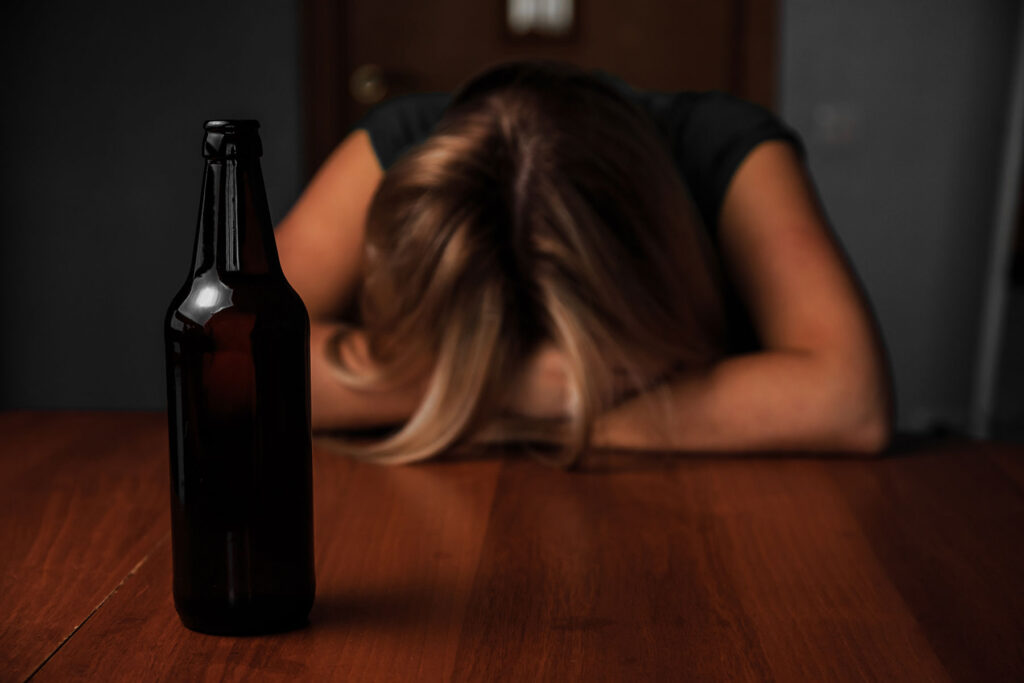When you’re living with an alcohol use disorder, losing out on high-quality sleep is one of many factors that can lead to impairment in daily functioning. But what are the effects of alcohol on sleep, and how can you start moving toward recovery? Call Promises at 844.875.5609 to learn more about our alcohol rehab center and how we can help.
How Alcohol Affects Your Brain
As a central nervous system depressant, alcohol slows down many of the body’s automatic and life-preserving functions. Alcohol primarily works by enhancing the effect of the neurotransmitter GABA, which is responsible for inhibiting central nervous system activity. This leads to the well-known effects of drinking alcohol, such as:
- Relaxation
- Tiredness
- Lowered inhibitions
- Stress or anxiety relief
Yet when you start to drink regularly, the brain and body become adjusted to these depressant effects. In order to counteract the effect of alcohol, your baseline central nervous system activity begins to rise. This is part of the explanation for why people develop a tolerance to alcohol and why people with alcohol use disorders develop withdrawal symptoms.
What Are the Effects of Alcohol on Sleep?
Alcohol and sleep interact with each other in a number of ways. The first effect that most people notice is that drinking alcohol can make it easier to fall asleep—a direct result of the depressant effects of alcohol. But even though it can be easier to fall asleep, sleep after alcohol use is typically less restful.
When alcohol is still in your bloodstream during sleep, it represses your body’s natural sleep cycle. According to the National Institutes of Health, alcohol use can interfere with rapid eye movement (REM) sleep, which can lead to feeling groggy and less rested in the morning.
But when people develop an alcohol use disorder, sleep can be disrupted even when the effects of alcohol have worn off. The increase in baseline central nervous system activity can make you feel more stimulated and awake when not under the influence, leading to insomnia and trouble falling asleep.
This can often lead to a downward spiral of alcohol and sleep issues, where people have difficulty falling asleep without alcohol and decreased sleep quality when they do drink.
Other Alcohol and Sleep Issues
The relaxing effects of alcohol can cause another serious sleep problem: sleep apnea. Sleep apnea is when people struggle to breathe during sleep, often accompanied by snoring or choking noises. Sleep apnea severely disrupts sleep quality and can lead to a number of harmful consequences when awake.
Alcohol is thought to worsen sleep apnea, particularly obstructive sleep apnea. Obstructive sleep apnea is when the throat muscles relax to the point of blocking the airway. Since alcohol can contribute to muscle relaxation, it can exacerbate the effect of obstructive sleep apnea and lead to more difficulty breathing.
A number of scientific studies have investigated the relationship between alcohol and sleep apnea. The general consensus of these studies is that alcohol increases the risk of sleep apnea by 25%.
Promises: Make the Right Choice for Alcohol Treatment
If alcohol is beginning to disrupt your sleep, it might be time to consider quitting. But if you’ve developed an alcohol use disorder, you might not be able to cut down or stop on your own.
Thankfully, there are evidence-based treatment methods to not only help you achieve recovery but also help you regain your sleep quality even through alcohol withdrawals.
To learn more about alcohol rehab, reach out to Promises by calling 844.875.5609. Our addiction experts are standing by to help you make the right choice for alcohol treatment and will be there to support you every step of the way.

